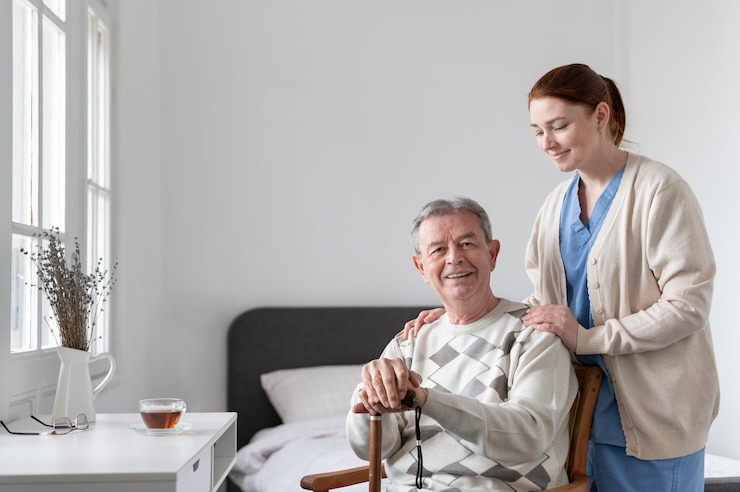It’s not always easy to know when a loved one needs more support at home. Changes often happen gradually, and family members may attribute them to “just getting older.” But spotting the signs early can make all the difference in ensuring your loved one stays safe, healthy, and independent.
At Bridgegate Care, we work closely with families to assess needs and provide thoughtful, personalised support. Here are some key signs that it might be time to consider home care.
Changes in Personal Hygiene
If your loved one is no longer maintaining their usual grooming or hygiene habits, it could be a sign they’re struggling with tasks like bathing, dressing, or washing clothes. This might stem from physical limitations, memory issues, or even depression.
Look for:
- Unwashed hair or body odour
- Soiled or inappropriate clothing
- Neglected oral hygiene
Decline in Household Cleanliness
A once-tidy home that’s now cluttered or dirty may indicate that housekeeping has become overwhelming. This can increase the risk of trips and falls or even foodborne illness.
Look for:
- Piles of unopened mail
- Expired or rotting food in the fridge
- Dust, spills, or tripping hazards
Mobility or Balance Issues
Difficulty walking, frequent falls, or a fear of falling can lead to serious injury. A caregiver can assist with mobility, encourage safe movement, and prevent unnecessary accidents.
Look for:
- Bruises or unexplained injuries
- Trouble standing up or using stairs
- Refusal to leave the house due to fear of falling
Memory Lapses or Confusion
Forgetting appointments, misplacing items, or repeating the same questions may point to cognitive decline. Early-stage dementia or other memory-related conditions often benefit from the routine and familiarity home care provides.
Look for:
- Missed medications or meals
- Unpaid bills or disconnection notices
- Difficulty following conversations
Changes in Eating Habits or Weight
A noticeable weight loss or lack of interest in food may signal that your loved one is struggling with meal preparation, grocery shopping, or remembering to eat.
Look for:
- An empty or poorly stocked fridge
- Burned pans or signs of kitchen accidents
- Loss of appetite or sudden food aversions
Social Withdrawal or Mood Changes
Isolation, sadness, or anxiety can sometimes stem from loneliness or declining health. A caregiver offers not just practical support but also meaningful companionship.
Look for:
- Loss of interest in hobbies
- Avoidance of social interactions
- Irritability, confusion, or signs of depression
Struggles with Daily Activities
If your loved one is finding it difficult to manage everyday routines, home care can provide support while helping them maintain independence.
Look for:
- Trouble with dressing, bathing, or using the toilet
- Inability to manage medications or appointments
- General signs of overwhelm
What to Do Next
If you’re noticing any of these signs, it might be time to talk openly with your loved one about home care. Start the conversation gently and involve them in the decision-making process.
At Bridgegate Care, we’re here to help you navigate this transition with understanding and respect. Our experienced team can carry out a free, no-obligation assessment to help you determine the right level of care.
Get in touch today to find out how we can support you and your family.




